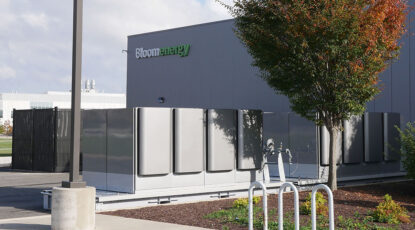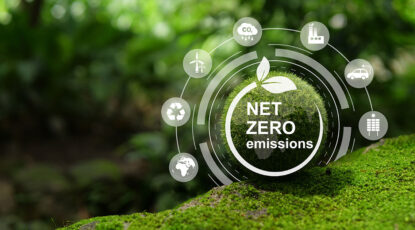Recent efforts to eliminate natural gas connections for new buildings domestically demonstrate that the demand for renewable fuels and clean energy sources is growing. However, natural gas is still a reliable, low-cost source of fuel that powers homes, businesses, and a large portion of the electricity sector.
In fact, natural gas use in the power sector grew rapidly this past decade, accounting for almost one-third of total energy demand growth. Its use in coming years is expected to keep growing strongly in all the scenarios studied by the IEA.
As grids modernize, natural gas-based generation is expected to replace coal generation, support growth of renewables and replace power currently provided by aging nuclear facilities.
Despite the interest in moving beyond fossil-based power generation, natural gas is likely to be a large part of the power sector mix globally in the near to medium term. As Climate Chief John Kerry stressed during CERA Week in March, natural gas consumption and emissions cannot go on unabated. In order to achieve energy security and resiliency while accelerating our path to zero carbon emissions, natural gas must be consumed as efficiently as possible to reduce overall demand and emissions.
What We Can Do to Help
First, we can consume gas as efficiently as possible. Bloom Energy’s non-combustion solid-oxide fuel cell platform produces power with one of the highest efficiencies available in power generation. We achieve this with the limited release of air pollutants, no water consumption during normal operation, highly efficient land use and micro-grid configurations that eliminate the need to use diesel backup generation.
Secondly, we must reduce methane leaks in the natural gas value chain. Methane release, a result of gas production, is an extremely potent greenhouse gas. Methane has over 80 times the warming power as CO2 emissions within the first 20 years. In the U.S., the Oil and Gas sector contributes about 30 percent of methane emissions, according to an official document from the White House, resulting in over 84 million tons of methane emissions each year.

Bloom Energy recently announced a partnership with EQT to bring certified low-leak natural gas to current and future customers, leading the market for certified low-leak natural gas. Bloom Energy is the first customer of EQT’s certified natural gas, which became available for sale in January 2022 and is the realization of Bloom Energy’s commitment made in July 2021 to convert our fleet to certified gas.
By taking action to decarbonize today’s energy solutions we are laying the foundation for a net-zero future. By converting its U.S. fleet of fuel cell installations – deployed at more than 700 sites – to EQT’s certified natural gas, the release of harmful methane emissions can be actively prevented today. In fact, over 176,000 tons of CO2 emissions will be avoided per year. That’s equivalent to the emissions of 38,329 passenger vehicles taken off the road annually.
Learn more about our certificate process here.
Because methane is a super-pollutant that drastically affects climate change in the near term, acting today to reduce methane emissions results in near-term climate benefits, and is equally impactful in avoiding future climate change. By purchasing certified, responsibly sourced natural gas, we can act to reduce methane emissions today, providing time to continue to scale and invest in renewable, clean energy technology to achieve zero emissions in the future.

What is Certified, Responsibly Sourced Gas?
Certified, responsibly sourced gas is natural gas that has been produced along a specific set of sustainability criteria to minimize methane leakage and harm to the environment. These criteria, some of which are defined by the standards established by Equitable Origin and MiQ, include a focus on methane leakage as well as more comprehensive environmental impact, social impact, and corporate governance standards.
When natural gas is produced responsibly, it reduces methane leakage and emissions, resulting in a less carbon-intensive fuel. Reducing methane emissions from oil and gas operations is among the most viable and significant actions we can take in the near-term to help address climate change.
How Does Certified, Responsibly Sourced Gas Differ from Regular Gas?
The majority of methane emissions leaks occur during upstream production, in the extraction of fuels, which ultimately travel through the pipeline network to be used by utilities and end-users. Through certified production, upstream quality attributes can be selected for and demanded by downstream users, creating a market-based solution to an addressable climate issue.
Certificating attributes of production allows for a more scalable market and for downstream gas users like Bloom Energy to drive upstream transformation without taking physical delivery of gas.
Certificates are awarded on the MiQ registry to certified producers based on methane emissions performance during natural gas production. Grades are awarded to producers meeting methane emissions below a certain threshold, and company practices that promote a culture of emissions management. Equitable Origin has an additional set of criteria that include fair labor and working conditions and indigenous people’s rights.
The certificates are transferred from producers to downstream users as a representation of the social and environmental attributes of its production. The more certified gas demanded by downstream users, the greater the incentive for producers to advance responsible practices.

How Does Certification Address Climate Change?
The climate significance is that the leakage of methane from upstream oil and gas environmentally is incredibly impactful. Because methane is what’s referred to as a short-lived climate pollutant, it creates more damage over the next 20 years than other warming gases.
While we work toward our zero carbon climate goals globally, we must maintain focus on how we reduce near-term greenhouse gas emissions. Methane leaks are one area of the oil and gas supply chain that can be addressed today, with existing technology.
Though the technology exists to reduce methane leakage, there must be a larger demand for it from the downstream natural gas users. By partnering with EQT Corporation, one of the largest producers of natural gas in the U.S., Bloom Energy is helping drive the demand and accelerate the market for certified natural gas.
Powering a Better Tomorrow
Bloom Energy’s commitment is so important because we are among a handful of companies asking the oil and gas industry to address methane leakage now. We are paying premium prices for certificates of low-leak natural gas and supporting the creation of a new environmental commodity market.
We’re also in a unique position of being able to introduce this important climate action to hundreds of large and sophisticated customers who can utilize certified gas throughout their operations. Bloom Energy is working diligently with the standards and our customers to help make broader adoption of the market a reality.
Our customers can decrease their CO2 emissions, and help realize a more sustainable energy procurement process. They are positioned as early market makers addressing the climate challenges of natural gas production through a more sustainable energy procurement process.
Bloom Energy remains committed to protecting our planet. Learn more about the value of certified low-leak gas and how we invest in our planet’s future in our 2021 Sustainability Report.



